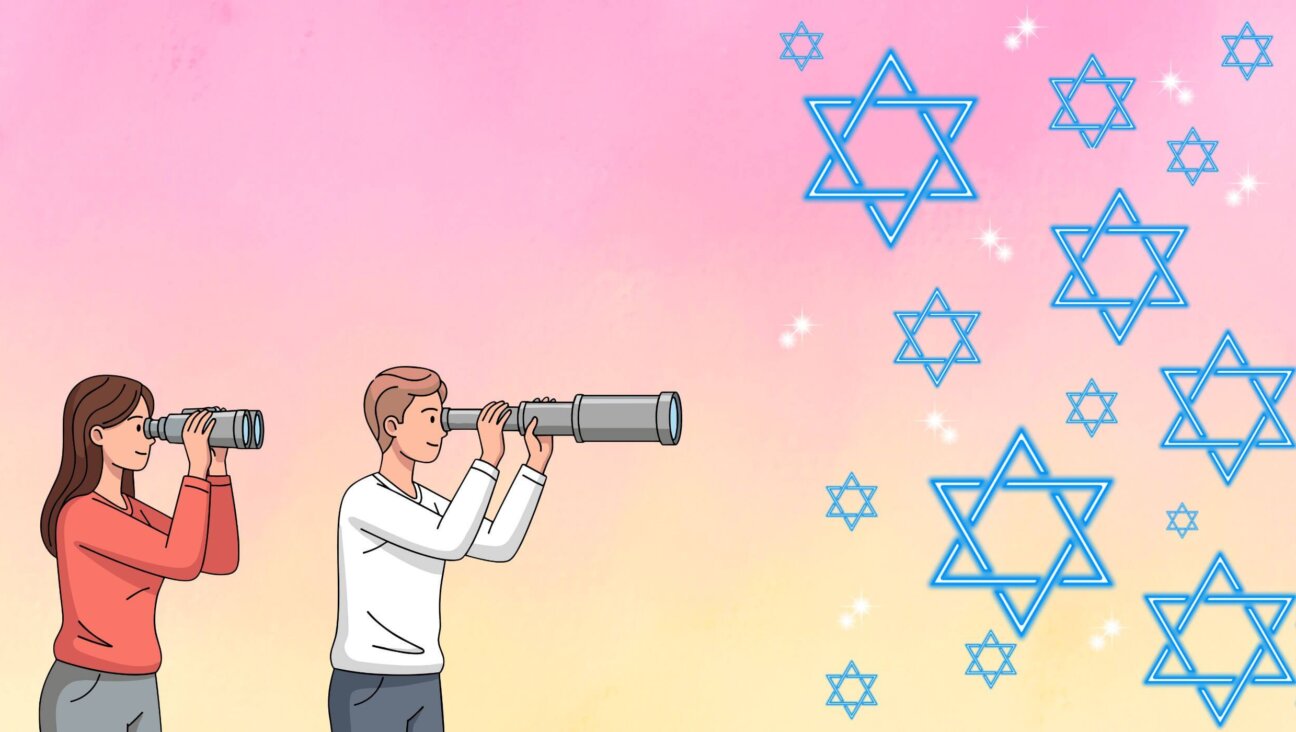Reuniting Our Country Must Begin Now — Not in 2020

Graphic by Angelie Zaslavsky
The New Year arrives in the afterglow of the menorah’s full brilliance – New Year’s Eve this year was also the 8th night of Hanukkah! The word Hanukkah means “rededication.” As we transition to 2017 and a new presidential administration, our country is in need of a chanukat habayit (dedication of the house), a reintegration of our house-divided. Lincoln borrowed the New Testament phrase “house-divided” to describe America of the late 1850’s, a country so shaken by racial and ideological disunity it soon devolved into civil war. How America in the age of Trump will withstand the deep divisions running through it remains to be seen. 2016 laid bare troubling signs of wide-spread misogyny, racism, Islamophobia, general xenophobia and anti-Semitism – that the Anti-Defamation League says rivals the 1930’s.
The wisdom of the rabbinic sages has always been to help us see the hugeness and seeming intractability of society’s problems through the lens of achievable goodness. “Love your neighbor as yourself,” Rabbi Akiva claims, is a klal gadol, a foundational principle of Torah -– if we can focus first on the internal and interpersonal, perhaps we can make progress toward broader communal and societal healing.
In my urban Baltimore shul, in this sense, 2016 was a very good year, as we hosted events and opportunities to better engage our neighbors of varying faiths, races and ethnicities. From an acapella concert, to election day volunteering to our annual “Greens and Kugel cook-off,” we continue to encounter the other, to see Jewish institutional walls as membranes, permeable and fluid. Such initiatives are not (and should not be) limited to Reservoir Hill, nor to Baltimore, nor even to urban settings. It’s all about willingness to do the work of culture-sharing and boundary-crossing.
But it’s not enough to lift up discretely positive examples. Achieving a more just society means thinking strategically. So, I want to offer a possible frame for our thinking over the coming 4 years. The next presidential election will occur just eight days before the 400th anniversary of the Mayflower Compact. This legal instrument, singular in import, was also quite narrow in scope. Written by Puritan Separatists on November 11, 1620, as their ship entered Cape Cod, the Compact focused exclusively on the needs of the 102 souls who made that arduous transatlantic voyage. The group pledged to “…Covenant and Combine ourselves together in a Civil Body Politic…to enact, constitute and frame such just and equal Laws, Ordinances, Acts, Constitutions and Offices…for the general good of the Colony…” The values of the document form the bedrock of American society – collective responsibility, democracy, the rule of law, submission to a higher authority be it God or the will of the people. Absent, however, is concern for non-Christians, Native Americans and people of color (just to name a few).
For 2020, I suggest we write a new Mayflower Compact. Specific questions to consider: to what collective aims must we strive? How can we engage more people of differing perspectives in identifying those aims? What is the new world, the best America toward which we must strive for the next 400 years? 2016’s election results aside, the seduction of populism notwithstanding, we cannot start over. We must reorder society by doing the hard work of affirming priorities and then working together toward constructive goals. That’s the spirit with which the Pilgrims rededicated themselves in first setting foot on this land. How might the spirit of Hanukkah illuminate our path toward a house-united in 2020?
A version of this essay appears in JMore.

















